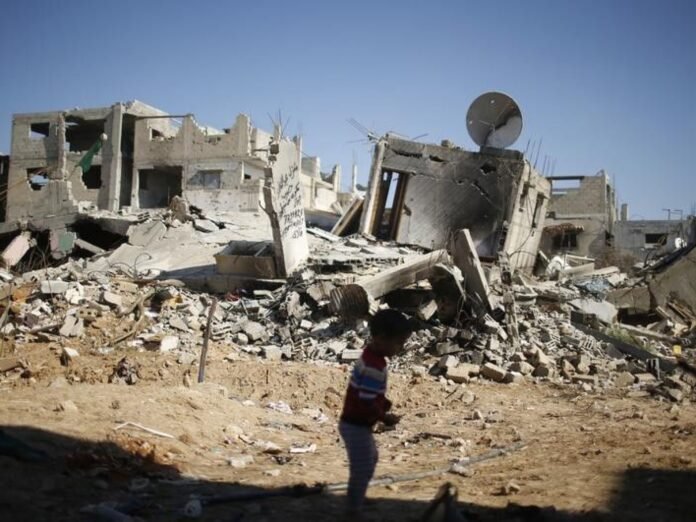Iran has accused Israel of orchestrating an attack that targeted a natural gas pipeline, resulting in explosions and disruptions to the country’s energy infrastructure. The incident, which occurred in the Khuzestan province in southwestern Iran, has raised tensions between the two nations and heightened concerns about regional stability.
According to Iranian officials, the attack on the pipeline was a deliberate act of sabotage carried out by Israel, with the aim of destabilizing Iran’s economy and infrastructure. The explosions caused significant damage to the pipeline, leading to disruptions in natural gas supplies to various regions.
In response to the attack, Iranian authorities have vowed to investigate the incident thoroughly and take appropriate measures to prevent similar acts of sabotage in the future. They have also called on the international community to condemn Israel’s actions and hold it accountable for the attack.
The Iranian government has characterized the attack as a violation of its sovereignty and a blatant act of aggression. Iranian officials have warned that such actions will not go unpunished and that Iran will retaliate against any further attempts to undermine its security and stability.
Meanwhile, Israel has denied any involvement in the attack, dismissing Iran’s accusations as baseless and unfounded. Israeli officials have emphasized that they remain committed to maintaining regional peace and stability and have called on Iran to refrain from escalating tensions further.
The incident comes at a time of heightened tensions between Iran and Israel, fueled by a range of geopolitical issues, including Iran’s nuclear program and its support for proxy groups in the region. The two countries have long been engaged in a shadow conflict, with both sides accusing each other of carrying out covert operations and cyberattacks.
The attack on the natural gas pipeline has raised concerns about the potential for further escalation and instability in the region. Analysts warn that such incidents could trigger a broader conflict between Iran and Israel, with potentially far-reaching consequences for the Middle East and beyond.
As tensions continue to simmer, the international community is closely monitoring the situation and urging both Iran and Israel to exercise restraint and avoid actions that could escalate the situation further. The incident underscores the fragile nature of the geopolitical landscape in the Middle East and the challenges involved in maintaining peace and stability in the region.
Following the attack, Iranian President Hassan Rouhani condemned the incident as a “terrorist act” and vowed to respond decisively to any threats against Iran’s security and sovereignty. He accused Israel of being behind the attack and warned that Iran would not hesitate to defend itself against any aggression.
In response to Iran’s accusations, Israeli officials reiterated their denial of involvement in the attack and emphasized their commitment to regional stability. They called on Iran to refrain from making baseless accusations and instead focus on addressing the root causes of instability in the region.
The attack on the natural gas pipeline has also drawn condemnation from other countries in the region and beyond. The United States expressed concern over the incident and called for a thorough investigation to determine the perpetrators. European Union officials called for restraint and dialogue to de-escalate tensions in the region.
Meanwhile, analysts have raised concerns about the potential impact of the attack on global energy markets. Iran is a major producer of natural gas, and disruptions to its energy infrastructure could have ripple effects on global supply and prices. The attack underscores the vulnerability of energy infrastructure in the region and highlights the need for enhanced security measures to protect critical assets.
As tensions between Iran and Israel continue to simmer, there are growing calls for diplomatic efforts to address the underlying issues driving conflict in the region. International stakeholders are urging both sides to engage in dialogue and find peaceful solutions to their differences to avoid further escalation and instability.
In the meantime, Iran has vowed to take all necessary measures to safeguard its security and sovereignty in the face of external threats. The incident has reignited concerns about the potential for a wider conflict in the region and underscores the urgent need for diplomatic efforts to defuse tensions and promote peace and stability.

